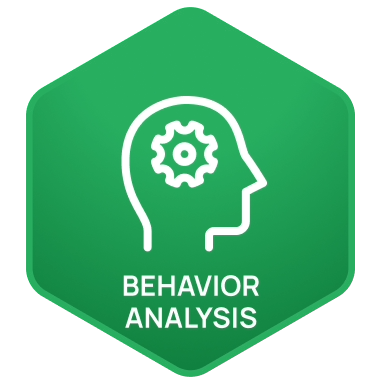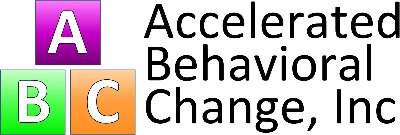About Job
Easterseals is leading the way to full equity, inclusion and access through life-changing disability and community services. For more than 100 years, we have worked tirelessly with our partners to enhance quality of life and expand local access to healthcare, education and employment opportunities. Easterseals Southern California provides essential services and on-the-ground supports to more than 15,000 people each year—from early childhood programs for the critical first five years, to autism services, daily and independent living services for adults, employment programs, veterans’ services and more. Our public education, policy and advocacy initiatives positively shape perceptions and address the urgent and evolving needs of the one in four Americans with disabilities today. Together, we’re empowering people with disabilities, families and communities to be full and equal participants in society.
Join us as we seek to be the most inclusive place for people with disabilities to live, learn, work & play easterseals.com/southerncal
Starting salary range $80,000-87,000 per year.
OVERVIEW OF POSITION: Under limited supervision, this position provides quality and program management, and provides clinical supervision and work direction to Program Managers and Interventionists. The Regional Trainer also provides discipline-specific treatment for children with development delays, disabilities, and autism spectrum disorders (ASD). This position is also responsible for development and delivery of training materials on organizational products, processes and technologies so as to ensure that team members develop, maintain, and increase their own clinical and/or process knowledge.
Essential Function
Typically requires a Master’s degree from an accredited college or university with a concentration in early childhood education/development, early childhood special education, special education, psychology, behavior analysis, or related field.|A Board Certified Behavior Analyst (BCBA) Certification is required.
Experience
Standing: Occasional
Sitting: Occasional
Walking: Occasional
Repetitive Motion/Activity: Occasional
Visual Acuity
Travel: Occasional
Join us as we seek to be the most inclusive place for people with disabilities to live, learn, work & play easterseals.com/southerncal
Starting salary range $80,000-87,000 per year.
OVERVIEW OF POSITION: Under limited supervision, this position provides quality and program management, and provides clinical supervision and work direction to Program Managers and Interventionists. The Regional Trainer also provides discipline-specific treatment for children with development delays, disabilities, and autism spectrum disorders (ASD). This position is also responsible for development and delivery of training materials on organizational products, processes and technologies so as to ensure that team members develop, maintain, and increase their own clinical and/or process knowledge.
Essential Function
- Partners with department heads to identify areas of concern and areas for improvement to provide and coordinate competency-based staff training. Attends staff meetings, in-services, trainings, and other meetings as requested, in addition to traveling within and across the organizational region(s).
- Manages training system and records. Collaborates with Training and Quality Team and ensures training content meets program goals. Recommends, develops and oversees updates to existing training materials for continuous improvement in course and program content
- Manages and facilitates behavior programs based on the ABA (Applied Behavior Analysis) principles; Conducts behavior assessments and functions as an Assessor as needed; Provides parent education, develops and delivers specific intervention activities based on the participants treatment plan, and monitors development of individuals being served in natural settings. Supervises interventionists, which may include some direct therapist hours. Manages and oversees accurate documentation, reports, and program records
- Remains current regarding new research, current trends and developments in organizational behavior management, behavior analysis, training, autism, special education, and related fields
- Performs other duties as assigned
Typically requires a Master’s degree from an accredited college or university with a concentration in early childhood education/development, early childhood special education, special education, psychology, behavior analysis, or related field.|A Board Certified Behavior Analyst (BCBA) Certification is required.
Experience
- 5-7 years of experience working with children with Autism Spectrum Disorders in a multi-disciplinary team setting. Or a combination of training, education and experience to perform the job successfully.
- Demonstrated knowledge and experience with behavior analysis teaching/training techniques used in organizational settings
- Demonstrated expertise in approaches to intervention based on the science of Applied Behavior Analysis. Competent in employing and directing behavior analytic methodologies including Pivotal Response Training (PRT), Natural Environment Teaching (NET), Picture Exchange Communication System (PECS) Behavior Skills Training (BST), and experimental functional analysis (EFA)
- Demonstrated knowledge of scientifically-validated methodologies and approaches found to benefit individuals with ASD; familiar with current related research findings
- Knowledge of the field of early intervention, and other community resources and agencies that serve individuals with ASD
- Strong clinical, administrative, and leadership skills, with the ability to maintain customer service orientation and professionalism in all interactions, and demonstrate good judgement, decision-making, and communication skills with a variety of individuals and groups, while exercising discretion and maintaining confidentiality
- Ability to communicate effectively, through oral and written skills, and work cooperatively with a variety of individuals, groups, and all levels of staff throughout the organization
- Ability to interpret and implement policies, procedures, and regulations
- Expert knowledge and experience working with Microsoft Office (Outlook, Word, Excel, PowerPoint, etc.) and related computer software
- Ability to relate well with children and their families
- Ability to maintain valid CPR certification, as well as valid CA driver license, safe driving record, and proper auto insurance/vehicle registration
- Ability to travel within and across regions with reliable transportation
Standing: Occasional
Sitting: Occasional
Walking: Occasional
Repetitive Motion/Activity: Occasional
Visual Acuity
Travel: Occasional
Professional Field
 Behavior Analysis
Behavior Analysis Other Behavioral, Mental, or Healthcare Field
Other Behavioral, Mental, or Healthcare FieldPatient Focus
Diagnoses
Autism
Avoidant Personality Disorder
Issues
News, Politics, and Society
Age Groups
Children (5-10)
Adults
Therapeutic Approach
Methodologies
ECT
Modalities
Individuals
Practice Specifics
Populations
Victims of Crime/Abuse (VOC/VOA)
Aviation/Transportation
Racial Justice Allied
School
Settings
Milieu
Private Practice
Research Facilities/Labs/Clinical Trials
Home Health/In-home
Military
Sign up for job alertsGet daily alerts for jobs relevant to you, sent to your inbox







